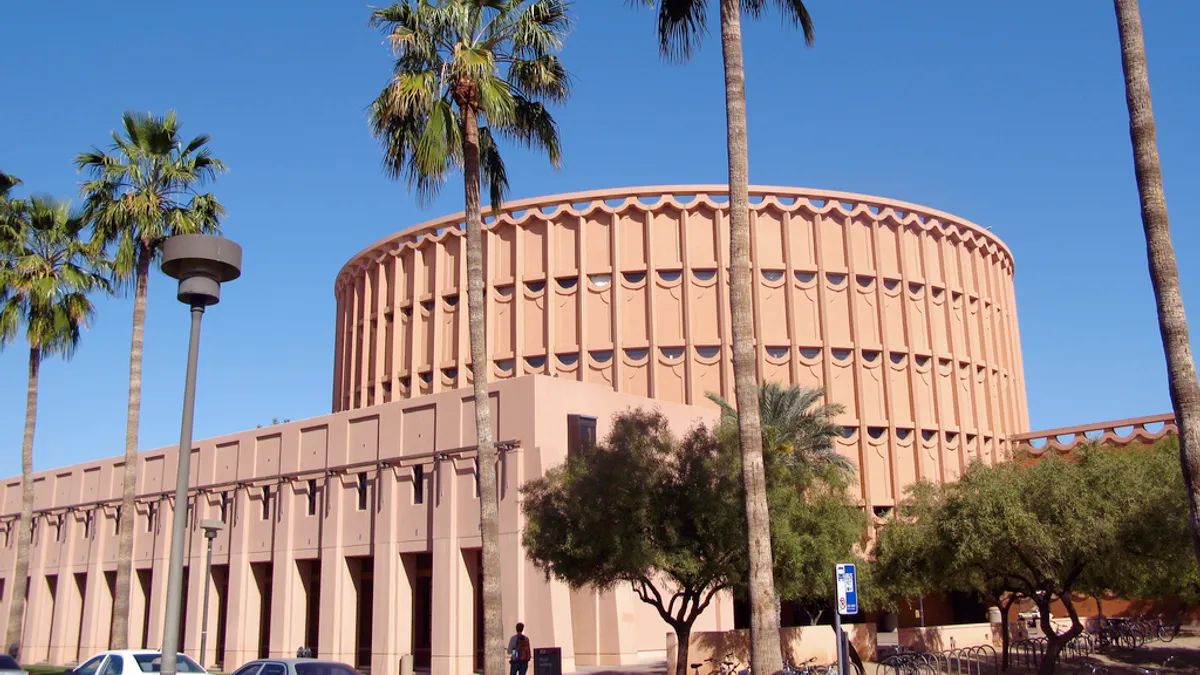Dive Brief:
- The Center for Smart Cities and Regions launched at Arizona State University to advance urban innovation and foster more sustainable, resilient and inclusive communities. The center's creators intend to bridge the gap between urban governance and science and technology research.
- The center will help cities leverage new technology, including from the Internet of Things (IoT), to meet their economic, social and cultural needs.
- A couple of the center's current projects include developing educational programs focused on smart technology and autonomous vehicle (AV) governance.
Dive Insight:
Arizona State's Center for Smart Cities and Regions will join the growing number of similar other establishments at well-known higher education institutions such as the Smart Cities Research Center at University of California, Berkeley; the Center for Urban Innovation at Georgia Tech and the Smart Cities Center at Columbia University. Even most major colleges and universities that don't have a dedicated smart cities research center now have programs or at least one initiative dedicated to the smart cities space.
The center will be able to draw conclusions from technology testing taking place right in its own backyard, considering that so many AV pilot programs are occurring on Arizona roads. Gov. Doug Ducey, R, is on board with this kind of innovation and last month gave approval for fully autonomous vehicles — without a safety driver inside — to test on Arizona roads.
Given that knowledge, it seems fitting that one of the first projects the Center for Smart Cities and Regions decided to tackle is AV governance. A number of industry and advocacy groups have been calling for increased governmental action on AV policy and regulations to ensure public safety measures are already in place once driverless vehicles roll out on a large scale. Such requests had been circulating even before last month's accident in Tempe, AZ in which a pedestrian was killed by an AV with a safety driver inside.
The requests for AV policy as well as technologies illustrates a growing demand for ideas and collaborations within the emerging smart cities space. Arizona State's Center for Smart Cities and Regions should help to fill that demand with its research and stated commitment to partnering with local governments.











